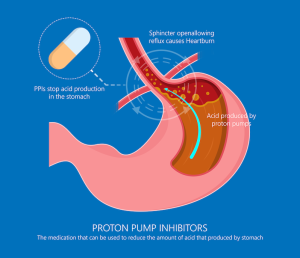Thanksgiving Tips for Eating Disorder Recovery

Eating disorder recovery doesn’t have an off-season—and Thanksgiving can feel like one of its most challenging tests.
For many, this day centers not just on food, but on the entire experience of it: preparing elaborate dishes, gathering around the table, and sharing in what’s meant to be a celebratory meal. Yet for someone navigating eating disorder recovery or struggling with disordered eating, the holiday table can feel weighted with far more than just festive dishes.
It’s the unspoken expectations that often feel heaviest—sideways glances at your plate, casual comments about “saving room” or “working off” the meal, and the pressure to seamlessly participate in food-centric traditions. What should be a day of gratitude and connection can instead feel like a carefully choreographed performance, where every bite feels observed and every decision scrutinized.
But Thanksgiving doesn’t have to feel like a test you’re destined to fail. With thoughtful preparation and supportive strategies, you can approach this day on your own terms, honoring both your recovery and your right to celebrate in a way that feels authentic to you.
Understanding Holiday Challenges
Understanding Thanksgiving’s hurdles is the first step toward reclaiming the holiday as an opportunity for growth in recovery.
The Layered Impact of Food-Centric Celebrations
Thanksgiving traditions often place food at the center of celebration—from cherished family recipes to hours spent gathering in the kitchen. This intense focus on food can create unique pressures when you’re in recovery. Well-meaning traditions and expectations around participation in the meal may feel overwhelming, especially when combined with comments like “It’s only once a year!” that might minimize the complexity of your healing experience.
The Subtle (and Not-So-Subtle) Presence of Diet Culture
During the holidays, diet culture’s voice often grows louder, masquerading as casual conversation. Comments about “earning” dessert or planning to “hit the gym” tomorrow might seem harmless, but they can reinforce disordered thoughts and disconnect us from genuine celebration.
Learn more about recognizing and challenging diet culture messages.
Complex Family Dynamics and Emotional Triggers
Holiday gatherings often bring together loved ones who, despite their best intentions, may not fully understand eating disorders or recovery. Comments about appearance or eating patterns can surface unexpectedly: “You look so healthy!” “It’s great to see you enjoying food again!” While said with love, these remarks can feel jarring—drawing attention to your body and eating habits in ways that might disconnect you from the peace you’re working to build.
Holiday Strategies That Honor Your Recovery
While Thanksgiving’s challenges are real, thoughtful preparation can help you approach the day with more confidence and support.
Consider meeting with your treatment team before Thanksgiving to create a plan that honors where you are in your recovery journey. Your therapist or dietitian can help you explore potential triggers and develop strategies that feel authentic to you. Having a follow-up session scheduled can provide additional support for processing the experience.
Building Your Support System
Identify a trusted support person who will be present, such as a trusted family member or friend. Consider sharing your specific needs and concerns with them beforehand.
This person might:
- Offer an understanding presence at your side during the meal
- Help redirect triggering conversations
- Plan check-ins with you throughout the day
- Establish subtle signals for when you need support
- Simply be there, without pressure to “fix” anything
Creating Morning Stability
Start Thanksgiving day gently, just as you would any other day. Maintaining your usual breakfast and snack routines can give you stability before the festivities begin.
Morning self-care suggestions:
- Wake at your usual time
- Have your normal breakfast in a peaceful setting
- Eat regularly, rather than skipping meals to “save room”
- Take time for grounding activities—gentle movement, journaling, reading, or simply sitting quietly
- Remind yourself that your recovery needs matter, especially on holidays
Managing Emotions Throughout The Day
It’s natural to feel anxious as the gathering approaches. Try the following strategies to stay grounded.
Before the gathering, you might:
- Practice deep breathing or meditation
- Text your support person to confirm check-in times
- Review your coping tools list
- Remind yourself that nervousness doesn’t signal you’re doing anything wrong
During the celebration, take regular breaks to reconnect with yourself:
- Step outside for fresh air between courses
- Find a quiet corner for a few minutes of mindfulness
- Practice grounding exercises you’ve prepared with your treatment team
After the meal, make time for distractions to ride out any urges or anxieties:
- Play a card game with supportive family members
- Watch a favorite holiday movie
- Take a gentle walk with your support person
- Engage in quiet activities you’ve brought from home
Navigating Food Situations with Care
Your treatment team understands the complexity of holiday meals. Meet with them for help creating a mealtime plan that feels supportive of where you are in recovery.
Your treatment team can partner with you by:
- Reviewing the planned menu, if helpful
- Identifying challenging foods and practicing coping skills
- Creating a flexible eating schedule that works for you
- Planning responses for common triggering situations
Remember that all foods fit in recovery. There is ample room for traditional holiday dishes in your meal plan—from Brussels sprouts and roast turkey to cornbread and pumpkin pie. What old favorites might you want to reconnect with this year? What new additions interest you? Your treatment team is here to help you build a Thanksgiving meal that honors your recovery while allowing you to engage with holiday foods in a way that feels safe and manageable.
Your treatment team can also suggest practical mealtime approaches like:
- Asking a support person to plate your food or engage you in conversation while you serve yourself
- Sitting next to someone who helps you feel calm
- Focusing on meaningful conversations instead of food
Responding to Challenging Comments
Holiday gatherings often bring up unwanted comments about food and bodies. Whether it’s casual diet talk, New Year’s resolutions planning, or observations about what’s on someone’s plate, having some prepared responses can help you feel more grounded in these moments.
Remember: you get to decide how to engage with these conversations in ways that support your recovery.
For moments when you want to set boundaries:
- “I’m working on focusing on other things in my life right now.”
- “I prefer not to discuss my eating/body/weight.”
- “I’m learning to find peace with food/my body these days.”
- “Those kinds of comments are tough for me—let’s talk about something else.”
- “I’ve discovered I feel better when I don’t engage in conversations about food/weight/diets.”
When you’d prefer to pivot to another topic:
- “Actually, I was hoping to hear more about your recent road trip to the coast!”
- “I’d love to hear about your latest adventure with [hobby/interest].”
- “Before I forget—what was that book you mentioned last time?”
- “Hey, have you watched [current popular show or movie] yet?”
- “How’s that community project you were excited about? Any updates?”
Setting boundaries isn’t selfish or rude—it’s an essential act of self-care and a vital part of recovery. Some moments might call for direct communication, while others feel right for gentle redirection. Trust yourself to choose what feels most supportive of your well-being in each situation.
Supporting Loved Ones Through Holiday Gatherings
Supporting someone in eating disorder recovery during Thanksgiving requires understanding, patience, and thoughtful preparation. While you may want to help in every way possible, often the most meaningful support comes through small, mindful actions that show you understand and respect their journey.
Before the Holiday: Setting the Foundation
The anticipation of holiday gatherings can be as challenging as the day itself. Taking time to connect beforehand shows your loved one they don’t have to navigate these challenges alone. Remember that they are the expert in their own recovery.
Create space for open dialogue to better understand their support preferences:
- Schedule a private check-in before the holiday
- Listen without trying to fix—validation is often most helpful
- Trust your loved one to know what they need—support needs may differ from previous years
- Take time to learn about eating disorder recovery
Work together to build comfort and safety into the gathering:
- Plan seating arrangements that feel comfortable
- Identify quiet spaces for breaks and agree on subtle signals if support is needed
- Share menu details if helpful, while remaining flexible about changes
- Plan engaging non-food activities, like games or holiday crafts
- If requested, brief other family members on how to offer support
During the Gathering: Offering Meaningful Support
Your words and actions can help create a buffer against difficult mealtime moments. What we say (and don’t say) shapes the atmosphere. Create safety through mindful communication.
Avoid conversations around:
- Food choices or portions
- Bodies or appearance
- Exercise or “working off” meals
- Diet plans or weight
Instead, guide conversations toward:
- People’s passions and interests: Start discussions that have nothing to do with food or bodies: “How’s that pottery class going?” “Did anyone catch the latest season of [TV show]?”
- Shared memories: Spark group storytelling about fun family moments: that chaotic camping trip last summer or the time everyone got lost on vacation.
- Current interests: Get people talking about what excites them: new hobbies, work projects, community involvement, or recent travels.
- Future plans: Help everyone see beyond this single meal and focus on what’s ahead: upcoming family events, travel dreams, or new local spots to explore together.
By actively steering group discussions toward these topics, you help create an atmosphere where diet talk and body comments naturally fade into the background. This benefits not just the person in recovery, but everyone at the gathering.
After the Meal: Maintaining Support
The hours following a holiday meal often bring heightened anxiety and intrusive thoughts about food and body image. Your continued presence matters deeply during this time.
Consider these approaches to help your loved one stay grounded in recovery:
- Keep plates on the table until conversation naturally winds down (for someone in recovery, rapid cleanup can feel like unwanted attention on their plate or create pressure to “finish up” before they’re mentally ready)
- Have engaging activities prepared (e.g., card games, movies, a holiday craft)
- Smoothly redirect any discussions about fullness or food-related comments
- Create cozy spaces for small groups to gather and chat away from the kitchen
- Be available if your loved one wants company, but don’t hover
- If your loved one needs to step away for quiet time, try not to draw attention to it
Remember: Your presence during this vulnerable time communicates powerful support. You don’t need to fix anything or make grand gestures. Simply being there, helping maintain a warm atmosphere, and showing that the gathering is about connection rather than food makes a profound difference.
The Role of Gratitude in Recovery
The word “gratitude” can feel complicated during eating disorder recovery, especially around Thanksgiving. But real gratitude isn’t about forcing positivity or minimizing struggles. Instead, it’s about acknowledging your strength, honoring your journey, and recognizing each small victory in recovery.
Celebrating Where You Are Now
Take a moment of gratitude to honor exactly where you are:
- You’re showing up, even when it feels overwhelming
- You’re listening to your needs, even when others might not understand
- You’re challenging old fears around food and gathering
- You’re setting boundaries to protect your recovery
- You’re choosing recovery, one moment at a time
- You’re building a support system that honors your journey
Looking Forward with Hope
Recovery opens doors to future holidays that aren’t defined by the eating disorder’s voice.
There’s space to feel grateful for all that lies ahead:
- The possibility of enjoying holiday meals with a renewed perspective
- New traditions that reflect your authentic values
- Opportunities for genuine connection at meals
- Strengthened resilience in facing challenging comments or situations
- New memories replacing old anxieties
- A world beyond the one the eating disorder created
Additional Holiday Support Resources
There’s profound strength in navigating this holiday while honoring your recovery. Whether you’re maintaining boundaries with family, taking quiet moments between courses, choosing recovery-aligned actions despite uncertainty, or simply showing up and staying present—each effort matters, even if others don’t see or understand.
The days following Thanksgiving may need extra care. Consider scheduling extra support:
- Schedule a check-in with your treatment team
- Plan gentle, recovery-focused activities that help you feel grounded
- Arrange support calls with trusted friends
- Keep your normal routine when possible
- Remember: challenging days are part of the journey—they don’t erase your progress
The Emily Program is Here for You
Holiday seasons can intensify eating disorder thoughts and behaviors. You’re not alone if you’re finding it difficult to cope during this time. Seeking additional support is an act of self-care and a courageous step toward healing.
At The Emily Program, we’re here to help with:
You don’t have to navigate this season alone. Whether you’re currently in treatment considering reaching out for the first time, supporting a loved one through recovery, or looking for recovery-focused resources, we’re here to walk beside you—through the holidays and beyond.
If your eating disorder is interfering with your ability to fully engage in this season—or any season—know that help is available. Don’t delay getting connected to the care you deserve. Learn more: reach out to The Emily Program at 1-888-364-5977 or by filling out our online form.







